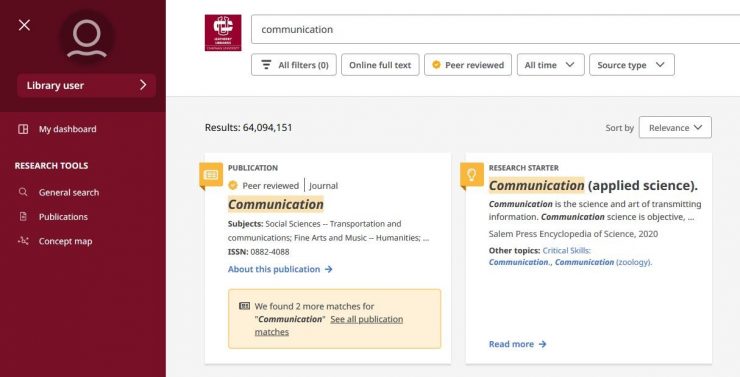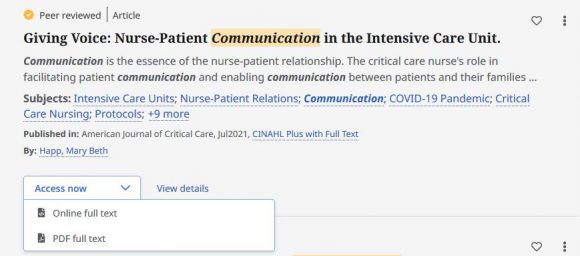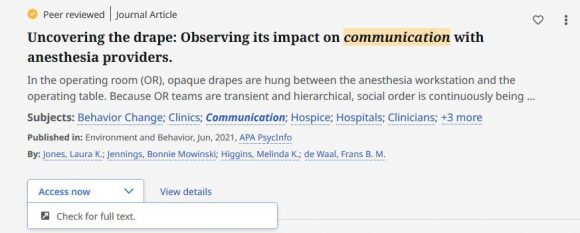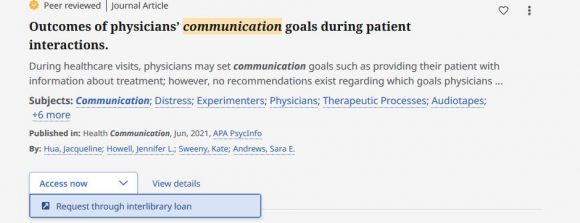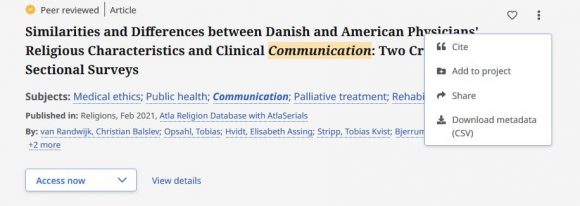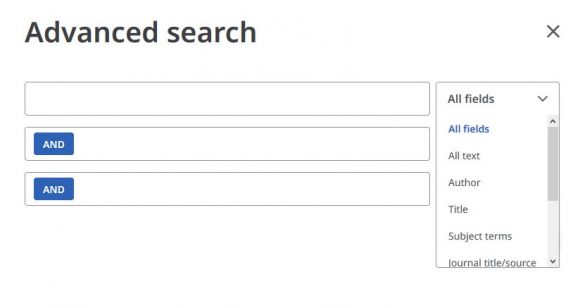
Check out the New Start Your Search Interface!
August 19, 2021
The Leatherby Libraries has switched to the new and upgraded interface of EBSCO Discovery Service, the technology that powers the Start Your Search tool that students, faculty, and staff can use to cross-search many of the library’s 300+ databases and journal packages to access full-text electronic content.
On the library’s homepage, the Start Your Search box looks familiar, and allows users to search by keyword:
Once you enter the results screen, the new interface has a different appearance than the old Start Your Search. Limiters are now along the top of the screen and include easy-to-click buttons to limit your results to items with online full-text, peer-reviewed articles, or filter by date range (all time or 1/5/10 years) or source type. Additional limiters are available under the “All filters” button, including options to limit by specific dates, publisher, language, or location within the physical library.
The “Access now” button under each record will help users access that item. For items that are available in multiple formats, a dropdown will display all of the options:
Items that are available in a single format will show “Access now (PDF),” “Access now (eBook),” or a similar label.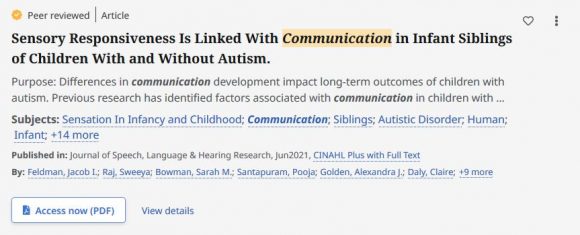
The Start Your Search tool can also link searchers directly to the full text of information contained in other databases. In these cases, under the “Access now” dropdown, users will see a “Check for full text” link that connects directly to the article, chapter, etc., using the enhanced functionality of our recently upgraded link resolver.
If an item is not available through one of the Leatherby Libraries subscriptions, then the “Access now” dropdown will direct users to request the item through our Interlibrary Loan system:
Above each article is a heart icon that users can click to “like” an item and save it to their EBSCO account, if they have created one. The three dots next to it also allow users to access automatically generated citations (which they can then cross-check against our Citation Styles LibGuide), add it to a Project in their EBSCO account (similar to “Folders” in the old interface), share the item, or download the metadata about it. And if users want to see more information about an item, such as its abstract, they can either click the title or the “View details” link at the bottom to access the full record.
In the left sidebar are several ways for users to access existing or create new EBSCO accounts. Users can click either the My EBSCO Dashboard link under the “Library user” heading, or “My dashboard.” Both will take them to a screen with options to sign in to an existing account or create a new one. 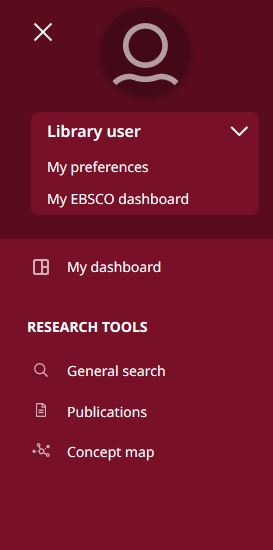 Also in the sidebar are a “General search” tool, which will take you to a new search screen; “Publications,” which links to our new Publication Finder/Journal A-Z List; and a new “Concept map” feature that allows users to explore a visual web of related topics based on a search.
Also in the sidebar are a “General search” tool, which will take you to a new search screen; “Publications,” which links to our new Publication Finder/Journal A-Z List; and a new “Concept map” feature that allows users to explore a visual web of related topics based on a search.
Advanced search functionality is also available in the new Start Your Search interface, allowing users to search by title, author, journal title, or more. The Advanced search screen is very minimalist, but rest assured that it will recognize you as an authenticated Chapman student, faculty, or staff and connect you to the resources you need!
Please contact the Reference Desk at libweb@chapman.edu if you have any questions or notice any issues during this time of transition. Thank you for your patience as we endeavor to improve the library resource discovery process.

